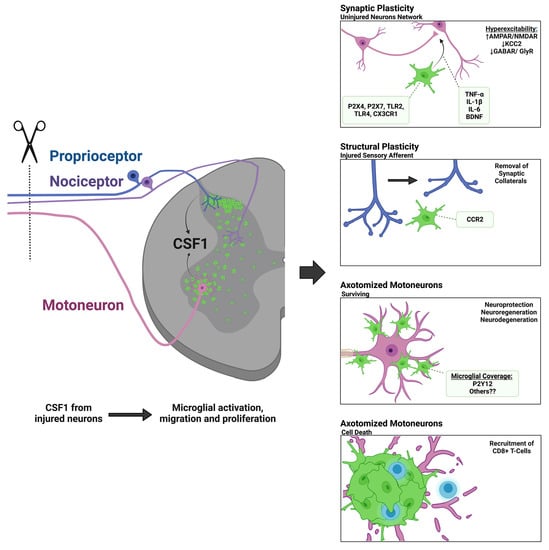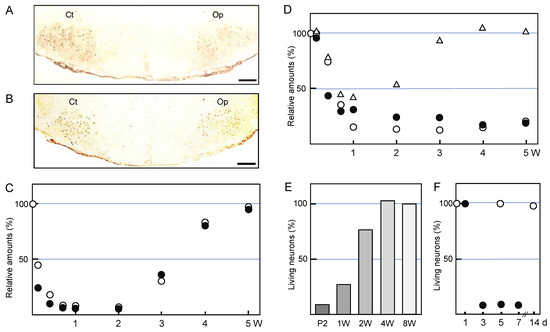Retrograde Responses of Neurons and Associated Glial Cells to Axon Injury
A topical collection in Cells (ISSN 2073-4409). This collection belongs to the section "Cellular Neuroscience".
Editor
Interests: neurons; microglia; peripheral nerve or dorsal root injury; injured spinal cord
Special Issues, Collections and Topics in MDPI journals
Topical Collection Information
Dear Colleagues,
This Special Issue is dedicated to recent and ongoing research on the cellular and molecular framework for the retrograde neuronal reaction. Neurons and associated glial cells, particularly astrocytes and microglia, respond to axon injury (axotomy) through an integrated process, which affects the neuron’s ability to survive, regenerate and maintain its synaptic connections. Axotomized motor neurons lose a large part of their presynaptic input, “synaptic stripping”, and peripherally axotomized sensory ganglion neurons display marked alterations in their central termination territories, “transganglionic changes”. The retrograde neuronal reaction is most commonly associated with the traumatic injury of peripheral or long distance projecting central axons, but is also a frequent consequence of, for example, stroke, traumatic brain injury, invasive malignancies, and metabolic disorders or toxin exposure, which compromise axonal integrity. In all these conditions, the outcome of the retrograde neuronal reaction will have a major impact on functional recovery. This Special Issue aims to cover research on how the retrograde neuronal reaction is triggered and maintained, the mechanisms involved for neuron survival or degeneration, as well as for neuron-glial, glial-glial and neuron-neuronal interactions, and how these processes come together to disrupt the affected neural circuitry, and the possibilities for its restoration through interventions with bioactive agents and rehabilitation. We look forward to your contribution.
Dr. Hakan Aldskogius
Collection Editor
Manuscript Submission Information
Manuscripts should be submitted online at www.mdpi.com by registering and logging in to this website. Once you are registered, click here to go to the submission form. Manuscripts can be submitted until the deadline. All submissions that pass pre-check are peer-reviewed. Accepted papers will be published continuously in the journal (as soon as accepted) and will be listed together on the collection website. Research articles, review articles as well as short communications are invited. For planned papers, a title and short abstract (about 250 words) can be sent to the Editorial Office for assessment.
Submitted manuscripts should not have been published previously, nor be under consideration for publication elsewhere (except conference proceedings papers). All manuscripts are thoroughly refereed through a single-blind peer-review process. A guide for authors and other relevant information for submission of manuscripts is available on the Instructions for Authors page. Cells is an international peer-reviewed open access semimonthly journal published by MDPI.
Please visit the Instructions for Authors page before submitting a manuscript. The Article Processing Charge (APC) for publication in this open access journal is 2700 CHF (Swiss Francs). Submitted papers should be well formatted and use good English. Authors may use MDPI's English editing service prior to publication or during author revisions.
Keywords
- neuron regeneration
- neuron degeneration
- astrocyte
- microglia
- synaptic plasticity













